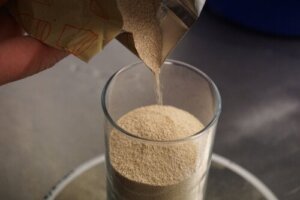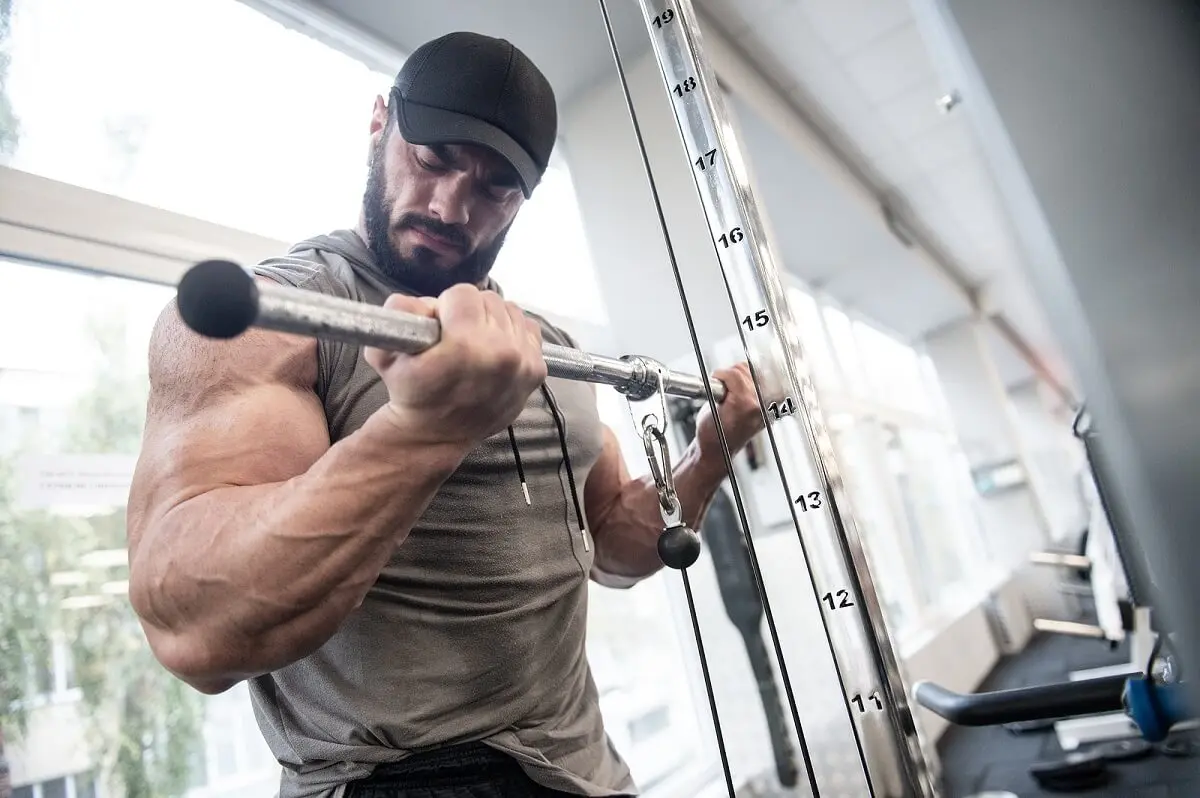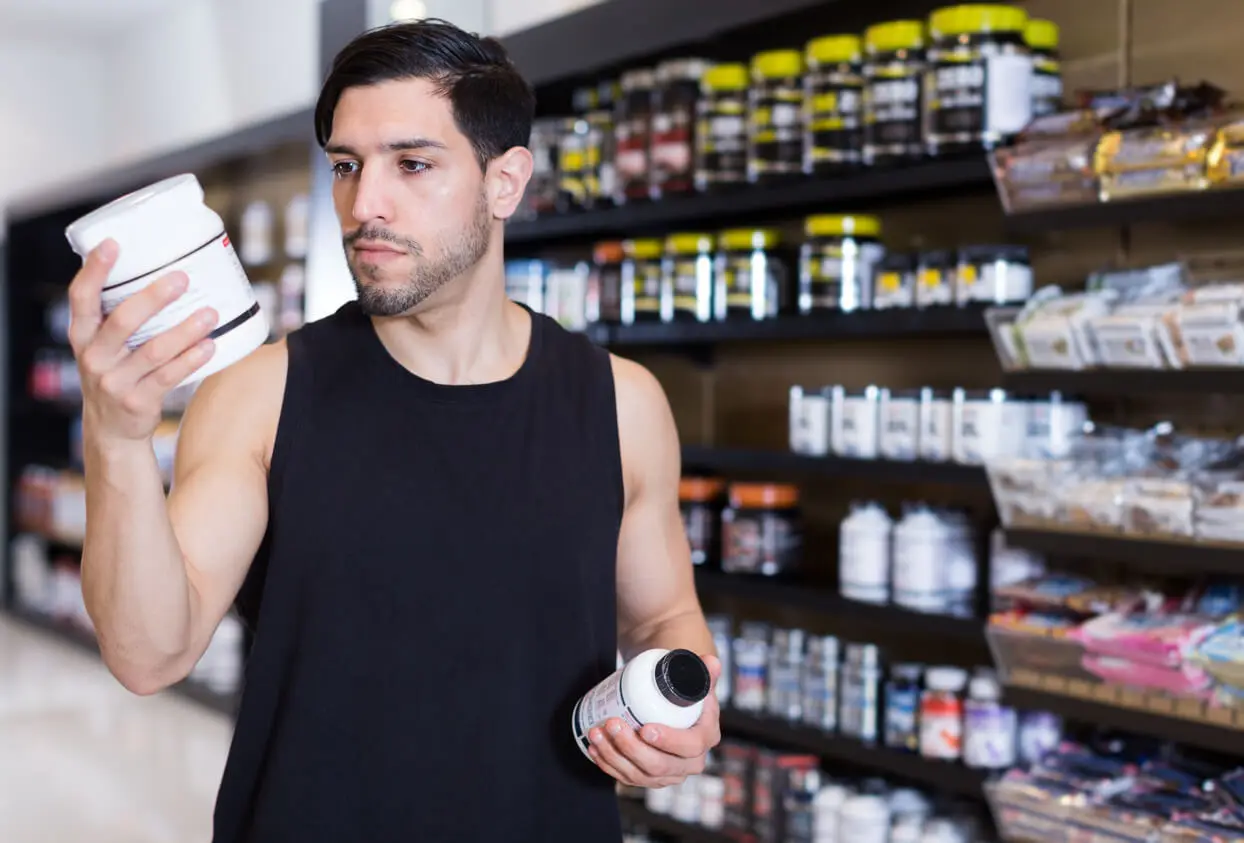Does Brewer's Yeast Help Increase Muscle Mass?


Written and verified by the nutritionist Saúl Sánchez Arias
Brewer’s yeast is a quality food that could help increase muscle mass if consumed correctly. It must be taken into account that the hypertrophy process is conditioned by several factors and that it requires time.
Results are not achieved from one day to the next. In addition, it will be necessary to optimize the diet in general; it won’t be enough just to include a certain product.
Supplements or food supplements are at the top of the pyramid. They’re good for improving performance and getting closer to your goals when everything else has been set up correctly. Otherwise, they’ll only waste money. This is why it’s key to focus on routines first.
Benefits of brewer’s yeast
First of all, it should be noted that brewer’s yeast is a source of various vitamins, such as those of the B group. It also provides proteins, although these are of low biological value.
These are lacking in some essential amino acids and have low digestibility. However, they help to complete the daily intake. It’s key to achieve a sufficient protein intake to maximize hypertrophy, as evidenced by research published in the journal Nutrients.
It should be noted that brewer’s yeast also concentrates antioxidants. Excessive consumption of these elements when exercising isn’t positive. They could inhibit cell communication and block the growth of lean mass.
However, a moderate intake will be key to avoiding muscle damage and optimizing recovery. This is confirmed by a study published in the International Journal of Environmental Research and Public Health.
Finally, it’s important to emphasize the need to increase the calories in your diet to achieve hypertrophy. Otherwise, you won’t be able to experience lean tissue gain.
Yeast can help, especially when combined with other nutrients and calorie-dense foods. However, it isn’t advisable to overdo it to avoid an excessive increase in fat weight, which wouldn’t be a good thing.

Read more here: An Easy Guide to Building Muscles Like Arnold Schwarzenegger
How can brewer’s yeast be taken?
There are several ways to consume brewer’s yeast. The most common is to buy it in pharmacies or specialized stores in the form of capsules.
They may contain other nutrients, such as iron or zinc. This depends a little on the formulation used by each company.
What should be done in these cases is to follow the manufacturer’s instructions to avoid an excess of certain elements, as is the case of vitamin C. This has been shown to improve immune function, but in very high amounts it will block adaptation to exercise.
On the other hand, it’s possible to find brewer’s yeast in powdered form. This is usually less expensive, so it’s the preferred choice of many.
It can be combined with foods such as yogurt or whipped cream cheese. It can even be added to coffee or milk. It also works with juice. As in the previous case, it’s important to respect the manufacturer’s recommendations.
Generally speaking, it isn’t a good idea to take more than 3-4 grams of brewer’s yeast per day, spread over several intakes. We must avoid blocking muscular adaptations. When planning hypertrophy, the most appropriate is a medium-term progression that prevents the genesis of fat mass.
Finally, it should be noted that this type of product should always be purchased in specialized stores. It’s vital that they have certificates or seals that guarantee their purity and quality, as well as the absence of doping substances. This is more important in the case of elite athletes.

You may also be interested in: Does Collagen Help to Gain Muscle Mass?
Consume brewer’s yeast to help increase muscle mass
Brewer’s yeast can be included on a regular basis in the diet with the aim of increasing muscle mass. It won’t be a revolutionary element for hypertrophy, but it will help if the rest of the relevant processes have been taken care of.
Keep in mind that making sure protein requirements are met and building a hypercaloric framework will be key to success over the months. Also, don’t forget to give sleep the attention it deserves.
At least 8 hours of sleep at night is necessary for the recovery and adaptation processes to take place efficiently. Otherwise, hormone production and endogenous protein synthesis could be altered, which goes totally against the goal we’re aiming for.
All cited sources were thoroughly reviewed by our team to ensure their quality, reliability, currency, and validity. The bibliography of this article was considered reliable and of academic or scientific accuracy.
- Deldicque L. Protein Intake and Exercise-Induced Skeletal Muscle Hypertrophy: An Update. Nutrients. 2020;12(7):2023. Published 2020 Jul 7. doi:10.3390/nu12072023
- Higgins MR, Izadi A, Kaviani M. Antioxidants and Exercise Performance: With a Focus on Vitamin E and C Supplementation. Int J Environ Res Public Health. 2020;17(22):8452. Published 2020 Nov 15. doi:10.3390/ijerph17228452
- Carr AC, Maggini S. Vitamin C and Immune Function. Nutrients. 2017;9(11):1211. Published 2017 Nov 3. doi:10.3390/nu9111211
This text is provided for informational purposes only and does not replace consultation with a professional. If in doubt, consult your specialist.








